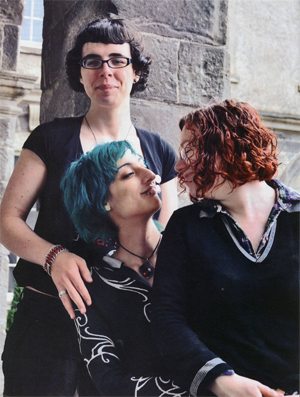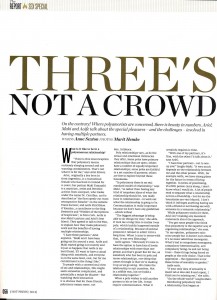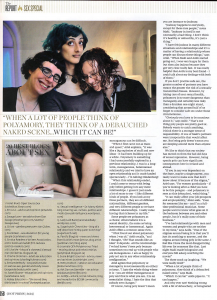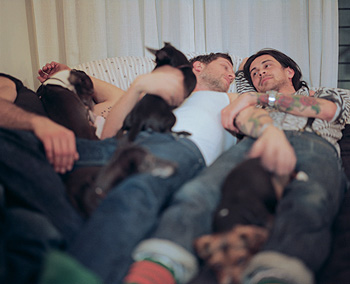Brazil has been making headlines as it became known that a public notary in Sao Paulo accepted a civil union between three people. The union was formalized three months ago, but has only now become public knowledge.
Public notary Claudia do Nascimento Domingues granted the union after determining that there was no law or mention in the Brazilian Constitution prohibiting such an arrangement. In defense of the decision, Domingues has said, "We are only recognising what has always existed. We are not inventing anything."
The triad of one man and two women, who live together in Rio de Janeiro, have a joint bank account and share all expenses. The union was made official by a deed of Union Poliafetiva ("Deed of Polyaffective Union"). Under this new status, the triad legally share property and assets, are entitled to family hospital visits, and are protected in case of separation or death.
In response to this news, a columnist at The Guardian asks, "Why shouldn't three people get married?" She writes:
The government can dictate that two people should be in a marriage, but it can't legislate what will make them feel happy or stable or emotionally complete together. And if we accept that, as we do every time we allow anyone the freedom to make a decision about who they'll marry, and furthermore allow them the freedom to call each other by execrable pet names in public, then does it not begin to seem strange, just a bit, that we do allow the government to dictate how many people are allowed to pledge to be together forever?
. . . as long as everyone is entering a marriage equally, as long as everyone is really going to make an effort to be open and honest to everyone else, it's probably not the government's job to tell them how many of them there should be.
The move has, as usual, elicited a strong negative response from religious groups. It is also yet to be seen whether courts, service providers, and private companies will uphold the ruling.

 The poly community has been anxiously following the reality show Polyamory: Married and Dating since it
The poly community has been anxiously following the reality show Polyamory: Married and Dating since it  Polyamory has been the topic of choice in a couple recent articles in Irish newspapers and magazines. The first piece, published in the Herald of Dublin, asks, "
Polyamory has been the topic of choice in a couple recent articles in Irish newspapers and magazines. The first piece, published in the Herald of Dublin, asks, "

 New York Magazine recently published their Sex Issue, which contained
New York Magazine recently published their Sex Issue, which contained